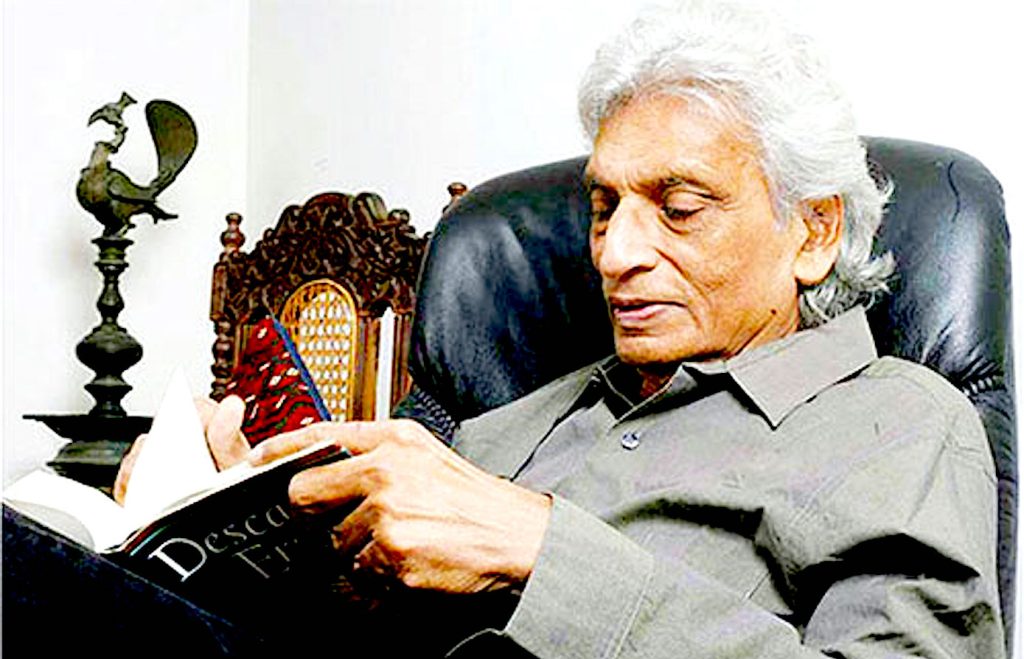Photo courtesy of The Island
Professor Gananath Obeyesekere was an excellent teacher, researcher and scholar as well as an excellent communicator mainly in English. Although born and raised in an urbane middle class family and educated in private schools in the English medium, he had a strong desire to discover his local indigenous traditions and customary practices by visiting villages and talking to lay people and Buddhist monks.
He collected folklore and beliefs held by the indigenous Sinhalese literati. Discovery of one’s own folklore, tradition and customs was not encouraged by standard British anthropology practice at the time. Later he encouraged his students to study one’s own culture and tradition at University of Washington and Princeton University.
In the latter part of his life, Gananath devoted his energies for comparative study of cultures, religions, beliefs and myths. This effort is reflected in his later publications. What his life, work and research or in short vocation reflects is his close affinity with the native system of creating and using knowledge as well as doing various tasks essential for sustaining life in communities. Making meaning, symbols and using them for human interations is a fundamental human activity.
Gananath’s Western oriented education in the English medium was not allowed to undermine his desire to discover self and the native heritage. However, he was not a nativist as such. Instead, he was one who developed strong analytical skills and insights about the subjects he examined. He read widely too. In one interview, Gananath characterises himself as an intellectual rebel. By any measure, he had a complex upbringing, education, exposure to multiple systems of thought and practice although the British colonial system of education and socialisation was the dominant one during his early education phase. Under such a dominant system, many Ceylonese opted to imitate, follow and reproduce the colonial ways and denigrate the native ways.
With Gananath’s departure we lost a true son of the land who developed skills and insights necessary to navigate multiple worlds including his own. For his students and others who derive inspiration from his life, research, publications and lectures, in short by his very being, Gananath has set very high scholarly standards. He encouraged critical and comparative analysis while being sympathetic to one’s own traditions. He did not encourage looking at one’s own culture, meanings and symbols from foreign eyes.
In the post Gananath era, what we need to do is to take leads from his pathbreaking life and develop a new brand of anthropologists and sociologists with similar capacities, skills and insights rather than reproducing Western anthropology and sociology without critical evaluation as to their applicability to our own contexts.
As Said Hussein Alatas, the pioneering Malaysian sociologist, said, we need to remove ourselves from the captive mind that generates dependency and become ourselves capable of independent analytical skills as anthropologists and social scientists. Unfortunately, the greatest obstacle for such a task is our own academic establishments that still imitate and reproduce semi colonial ways and practices. Decolonisation of mind is imperative for intellectual liberation and even a system change.
